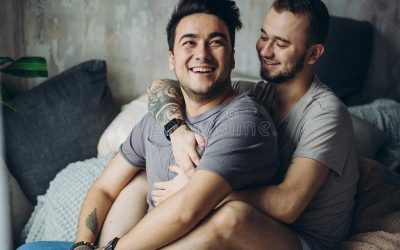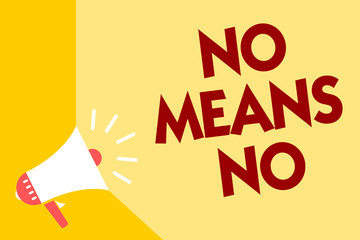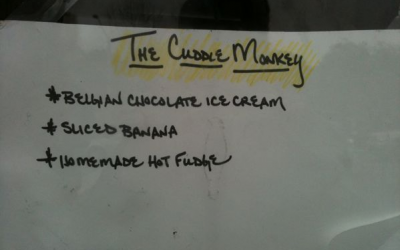Most people who know me consider me an open book. There’s not much I’m unwilling to reveal, and many people find it very easy to get close to me. Having said that, we all have things we don’t like to discuss, sticky issues that make us uncomfortable or self-conscious. Or we might not want to talk about certain things because we just don’t think they’re that important and we’d rather not dwell on them. But in the spirit of openness, we sometimes take a risk and share our hearts in the hope that others will receive our gift of vulnerability and accept us, warts and all.
In that spirit, I will take a risk and let the Cuddle Party audience know that I have a disability; I am blind. For most of my life, I didn’t talk much about my blindness because I considered it a secondary trait, like the color of my skin or the size of my nose. I’m not a blind person, I would say, I’m just a person who happens to be blind. While that’s certainly true, I can’t escape the fact that my blindness is part of what has formed me, a big piece of why I am the person I am today. A few years ago I couldn’t talk much about my blindness, at least not about the deep childhood wounds that surrounded it, some of which I’ll share here. But that was before I went to therapy and brought those wounds to the surface. At that point, talking about it was essential to my healing journey.
I attended my first Cuddle Party last summer in Birmingham, Alabama. I’ve attended similar events in the past, and thoroughly enjoyed the deep warmth and sense of community that was on display for all to see, touch, and feel. As a blind person, I was especially impressed with the focus on verbal communication. At Cuddle Party, no one is allowed to touch, hug, or cuddle someone without verbal permission from the other person. I must hear an audible “yes,” before I reach out and touch someone.
This kind of specific communication is good for everyone. It ensures safety and maintains healthy boundaries. But for a blind person, it’s a virtual godsend. I can’t rely on body language, facial expression, and other nonverbal cues to tell me when someone else is uncomfortable, or when I’m making unwanted advances. At Cuddle Party, nothing, and I mean nothing, is left unspoken. Imagine a cuddle party where silence was encouraged or where people weren’t allowed to talk. Not only would I suffer at that kind of event, but so would everyone else. When we don’t have the tools of verbal communication, we risk misreading those visual cues I mentioned earlier. There’s just no way to clarify intentions, assertively express discomfort, or clearly communicate our wants and needs. Verbal expression of thoughts and feelings is not just icing on the cake, it’s a necessity.
Another thing Cuddle Party taught me was the importance of asking for help. This is difficult for many of us, but it’s especially hard for a blind person. Let me explain, and give you some insight into the deep wounds I mentioned earlier.
I’ll begin by sharing an inside perspective on something that goes on in the blind community among some blind people and many of the professionals who work with them. In reaction to the days when people took care of the blind and did everything for them, the blind are now expected to do everything for themselves. Independence is not just encouraged, it’s demanded. I know blind people who will wander around for hours if they’re lost, rather than ask for help. The pressure to be hyper-independent is merciless.
I grew up with that same kind of pressure. Don’t get me wrong, I had some great teachers, and I’ll take this opportunity to name names. Kathy Newman was one of them. She corrupted me big-time. She introduced me to Stephen King novels, brought home-cooked food to school, and invited me over to her house for dinner on weekends. She even took me and another visually impaired kid to the shooting range. Another great guy was Vaughn Koolman, who was laid-back and informal; we could kid around about anything. But I also had some others that were less than desirable. Some of them gave me the message that I had to be independent at all costs, even at the risk of my own safety. I was told, for example, that I needed to learn to cook, and that I wouldn’t be independent if I didn’t. I love cooking, but I don’t feel comfortable doing much of it alone; I don’t feel comfortable over a hot stove if I can’t see what I’m doing. I can remember clearly one teacher telling me about a former blind student of hers, and telling me that he was frying his own chicken now. Well, more power to him, but I don’t want to start a grease fire, thank you very much. I was also taught how to cross busy streets alone, by walking with the traffic beside me instead of in front of me. But I never felt comfortable doing it; I never felt safe relying only on my ears in that situation. What bothered me was not so much what was said, but what wasn’t said. Except for a few people, no one ever encouraged me to ask for help in situations where I felt unsafe or in real need.
In fact, asking for help was actively discouraged. To let someone do anything for me was considered a sign of weakness, and a burden on others. Imagine growing up feeling literally like needing or wanting help is some kind of a sin. I kid you not; that’s how it was. There were a few exceptions to this, though. In 7th grade, I had another great teacher, Jan Wilson, who was showing me how to get around a new school. She told me if I got lost I could always ask for help. “Ask for help?” I said, “I thought only babies asked for help.” “No,” she said, “adults do it, mature people do it.” I was shocked, I felt like I was hearing a foreign language. A high-school counselor also encouraged me to ask for help, and told me he wished I would do it more often. “I do too,” I said softly, and basked in his kindness and concern.
But I couldn’t do it; at least not then. I had grown up feeling so ashamed to ask for help, and that shame was overwhelming, a huge albatross around my neck.
Don’t get me wrong; I do plenty of things myself. I take buses and trains, use a computer, and am a published writer. I’ve also been a standup comic and radio talk-show host. I’m a happy, well-adjusted guy, and I don’t let my blindness stop me from living. But that doesn’t change the fact that I’m blind, and the truth is I will always need more help in certain areas than sighted people.
So, how does this relate to Cuddle Party? I attended two Cuddle Parties on consecutive nights. On the first night, there were a couple of moments that were awkward for me. About a half-hour into a Cuddle Party, participants are asked to do a hugging exercise. We’re supposed to collect four hugs in one minute. This was awkward for me; my lack of sight made it difficult for me to know who was available. It reminded me of the way I sometimes feel at singles dances. I want to meet new people, but it’s hard for me to initiate conversation or introduce myself. I don’t always know if a person is involved in conversation, or preoccupied, or whatever. Situations like this make me feel self-conscious, because they draw attention to my disability.
So I decided to do something about it. At my second Cuddle Party, I simply spoke up and communicated my needs. I talked with the facilitators beforehand, and told them I would need a short time to share my concerns. Then, right before the hugging exercise, I was allowed to tell the group that I needed assistance in this area. Thankfully, someone was kind enough to offer it, leading me around the room and letting me know who was available for a hug.
In that situation, I was asking for help, something I wasn’t allowed to do as a child. A few years ago, I couldn’t have done it, but thanks to therapy, and God’s healing hand, I now give myself permission to seek help, permission that was denied me for such a long time.
But some of those awkward feelings did return again toward the end of the first party. Right before the closing, the group does what’s called a puppy-pile, where people get on the floor for some last-minute snuggling. But I felt rather excluded, I wasn’t sure where to lie down, and was too embarrassed to ask for help. So, during the first night, I didn’t get into it. I admit I felt not only excluded, but lonely and awkward. For some reason, I didn’t have the courage to ask for help this time, maybe because that’s still hard for me to do. But on the second night, I was blessed. A lovely lady invited me in, and asked me if I would lie down next to her. While it’s important to ask for help, it was so nice to be rescued and spared the embarrassment. I’m so glad I didn’t have to ask.
And I’m glad I was included in the puppy-pile. I’m also glad that lady was sensitive enough to notice I was being left out. Her heart was moved, and I was rescued.
I’m tired of trying to be independent, but I don’t want to be dependent either. My favorite word is interdependence, and that is my goal. I want to give and receive love, extend help to others, and feel free to ask for it when I need it, or just when I want it. Cuddle Party gives me another chance to practice interdependence. But how do I practice this healthy balance, this tension between using my strengths to help others and relying on others in times of weakness? I don’t know how to strike the right balance because it was never modeled for me. The only thing I can do is be around others who are striving for the same. That means living in community, and if Cuddle Party is about anything, it’s about building a sense of community, a kind of extended family. Here I can practice asking for help, feeling included, and receiving as well as giving. Again, how do I do this? I don’t know, but at least I don’t have to do it alone.
~
Andre Traversa is a freelance writer and media consultant living in Park Ridge, Illinois. He can reached at goandre@xnet.com




